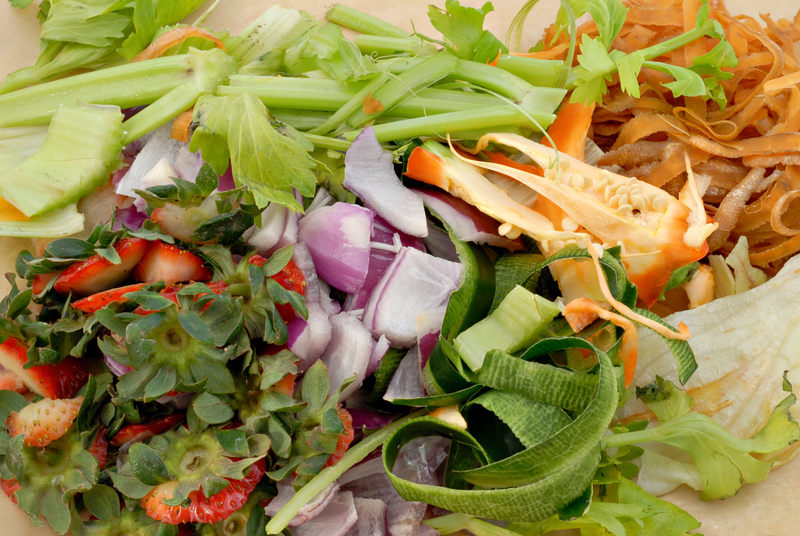Redefining Plant Pot Disposal with Sustainability
Plant pots are an indispensable element in gardening, landscaping, and horticultural industries worldwide. Yet, the environmental impact of traditional plastic planter pots is increasingly coming under scrutiny as waste mounts in landfills. Redefining plant pot disposal with sustainability is not just a trend--it's becoming a necessity in our journey towards a greener future. This comprehensive article will explore innovative, eco-friendly disposal methods, the importance of sustainable practices, and actionable steps for individuals and organizations.

The Environmental Problem: Traditional Plant Pot Disposal
Every year, millions of plastic plant pots end up in landfills. Unlike other plastics, these containers often evade municipal recycling systems due to their composition or contamination by soil and roots. This contributes significantly to long-term environmental degradation.
- Plastic Persistence: Most plant pots are made from polypropylene (#5) or polystyrene (#6), both of which can take hundreds of years to decompose.
- Contamination Issues: Soiled pots are frequently rejected by recycling facilities, which require clean plastics to avoid cross-contamination.
- Increasing Waste: As gardening grows in popularity, so does the volume of discarded plant containers.
The need for rethinking and reinventing plant pot disposal methods is obvious. To dispose of plant pots sustainably, it's imperative to adopt innovative strategies and support eco-conscious alternatives.
Why Sustainable Plant Pot Disposal Matters
Sustainable disposal of plant pots is critical for minimizing landfill waste, conserving resources, and building a healthy ecosystem. When we shift to greener disposal methods, we also support a larger movement toward environmental stewardship. Here are some key reasons this shift matters:
- Waste Reduction: With billions of pots used globally, proper disposal significantly cuts waste.
- Resource Conservation: Recycling and reuse save energy and reduce the need for new raw materials.
- Pollution Prevention: Sustainable disposal methods lower the risk of plastic pollution in waterways and soils.
- Supporting Circular Economy: Keeping plastics and materials in use longer aids the circular economy, benefiting both nature and society.
Did You Know?
Plastic pots account for up to 50% of waste generated by nurseries and garden centers annually in some regions.
Innovative Solutions: Sustainable Plant Pot Disposal Methods
If you're wondering how to dispose of plant pots sustainably, you're not alone. Let's examine current solutions reshaping the industry and garden community.
1. Plant Pot Recycling Programs
- Local Recycling Centers: Some municipalities and commercial nurseries now accept clean, plastic plant pots for specialized recycling. Call your local recycling center or check their website for details.
- Retail Drop-off Points: Major retailers, such as Home Depot or Lowe's, offer drop-off programs where customers can bring back used pots for recycling and reuse in their supply chain.
Tip: Rinse pots thoroughly before recycling to increase the likelihood they'll be accepted.
2. Biodegradable and Compostable Plant Pots
The garden industry is making strides in eco-friendly plant pot disposal by embracing pots made from biodegradable materials like coconut coir, peat, rice hulls, and cardboard.
- Fully Compostable: These pots can be planted directly into the soil, where they break down naturally, adding nutrients as they disintegrate.
- Zero Waste: No traces are left behind, and there's no need for landfill space or recycling processes.
Advantages:
- Reduces plastic consumption and dependency.
- Improves plant health by avoiding transplant shock.
Example: Cow pots made from composted cow manure are a novel, sustainable alternative gaining popularity among eco-friendly gardeners.
3. Reuse and Repurposing of Plant Pots
Before tossing, consider creative ways to extend the life of your containers!
- Personal Gardening: Clean and store plastic or clay pots for future planting seasons.
- Seed Starting: Small pots and cell packs work perfectly for seed germination or propagating cuttings.
- Craft Projects: Upcycle old pots into unique home decor, storage organizers, or children's art projects.
- Community Donations: Offer surplus pots to community gardens, schools, or social media gardening groups.
4. Producer Take-Back Initiatives
Some progressive nurseries and manufacturers offer take-back programs for used pots. These operations reclaim pots, sanitize them, and reuse or recycle in bulk--closing the waste loop.
- Promotes collective responsibility for waste management.
- Encourages manufacturers to innovate in durable, reusable designs.
5. Bulk Return and Deposit Programs
Some suppliers operate bulk 'return and reuse' schemes, especially for landscapers and commercial growers. By offering a deposit or return incentive, pots are collected, cleaned, and redistributed for fresh use.
The Rise of Alternative Materials: Sustainable Plant Pot Innovations
Traditional plastics are no longer the default. Here's a look at the next generation of sustainable options for plant pots:
- Bamboo Pots: Naturally resistant to bacteria and fully biodegradable, bamboo pots break down in the soil without harmful residue.
- Mycelium (Mushroom) Pots: Made from the root structure of mushrooms, these pots are 100% compostable and have a minimal carbon footprint.
- Pots from Recycled Plastics: Some pots are now molded from previously recycled plastics, further closing the material loop and reducing demand for virgin materials.
- Paper-based Pots: Designed for temporary seed starting, these break down alongside plant roots when transplanted.
Innovation spotlight: Plantable seed pots made from cow manure, coconut coir, or rice bran are revolutionizing sustainable gardening practices across the globe.
Implementing Sustainable Plant Pot Disposal: Tips for Every Gardener
Every gardener--amateur or expert--can take steps to make plant pot disposal eco-friendly. Here's how you can redefine your plant pot disposal practices to align with sustainability:
- Choose Biodegradable Pots: Whenever possible, select pots made from compostable or plant-based materials.
- Rinse and Recycle: Clean plastic pots and check with local facilities about appropriate recycling bins or methods.
- Reuse Continuously: Store and reuse pots for multiple planting seasons to extend their useful life.
- Donate Extras: Pass unused pots to schools, local gardeners, or charities who can give them a second life.
- Support Eco-Friendly Retailers: Shop from nurseries and brands dedicated to eco-friendly packaging and responsible disposal.
- Advocate for Change: Encourage local garden centers and councils to adopt pot recycling programs.
Challenges and Considerations in Plant Pot Disposal Sustainability
While more sustainable plant pot disposal methods are on the rise, there remain several hurdles to widespread adoption:
- Collection Infrastructure: Many areas lack the necessary infrastructure to collect, sort, and process plastic or biodegradable pots efficiently.
- Consumer Awareness: Many gardeners are unaware of available disposal or return programs.
- Cost Differences: Sustainable pots can be more expensive than traditional plastic options, although prices are slowly coming down.
- Recycling Limitations: Not all plastics are easily recycled; in some cases, small or dirty pots are still diverted to landfills.
Overcoming these obstacles calls for partnerships between governments, industry leaders, and consumers alike.
The Business Case: Garden Centers and Nurseries Lead the Way
Forward-thinking garden centers and plant retailers are taking proactive steps to redefine plant pot disposal sustainability. Here's what industry leaders are doing:
- In-store Pot Recyclers: Installing dedicated bins for used pots, making it easy for customers to return containers.
- Bulk Collection Drives: Hosting seasonal campaigns to gather, clean, and distribute used pots across their networks.
- Brand Collaboration: Partnering with sustainable pot manufacturers and local recycling firms to ensure eco-friendly options are available.
These practices not only reduce waste but also strengthen brand loyalty among eco-conscious consumers. Garden centers can set industry standards by promoting alternative materials and proper disposal education.
Legislation and Future Trends in Sustainable Plant Pot Disposal
Worldwide, regulations are evolving to encourage more responsible approaches to single-use plastics, including those used for plant pots.
- Extended Producer Responsibility (EPR): Laws requiring manufacturers to manage the full lifecycle of their products, including end-of-life disposal.
- Incentives for Sustaining Recycling: Grants and subsidies that promote the production and disposal of recycled and compostable products.
- Ban on Single-Use Plastics: More regions are phasing out or heavily taxing non-recyclable plastic pots.
As the circular economy grows, expect more investment and innovation in compostable, recyclable, and reusable pots.

Frequently Asked Questions (FAQ) - Sustainable Plant Pot Disposal
- Can all plastic plant pots be recycled?
Not always. Recycling depends on local facilities and the cleanliness, type, and size of the pots. Always check with your local recycling provider. - Are biodegradable pots really better for the environment?
Yes! They break down naturally without leaving microplastic residues, making them a great eco-friendly choice. - How do I dispose of ceramic or clay pots sustainably?
Reuse is the best option or donate to art projects, garden clubs, or local plant shops. Broken clay pots can also be used as drainage in garden beds. - Where can I find sustainable plant pots?
Many garden centers, online retailers, and eco-focused brands now offer alternatives, like bamboo, coir, or recycled-material pots.
Conclusion: Redefining Plant Pot Disposal in the Era of Sustainability
Sustainable plant pot disposal is an achievable goal that benefits both the environment and the gardening community. Through recycling, reuse, and the adoption of biodegradable or compostable options, individuals, businesses, and organizations can work together to reduce waste and build a greener tomorrow.
Whether you're a hobbyist or a professional grower, choose to make a difference--one pot at a time. Consider not only how you start your plants, but also how you dispose of plant pots sustainably, supporting our planet's health for generations to come.